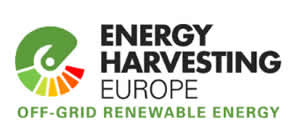Energy Harvesting Europe Article: A world without batteries
 Energy Harvesting Europe Article by Dr Peter Harrop: The battery business is booming. With the exception of lead-acid batteries outside China, disposal and recycling is often out of control. Just one example is the 30 billion button batteries made yearly and used in everything from talking gift cards to medical equipment. Lead acid batteries have a positive value to recyclers and strict laws also make users act responsibly. However it is likely that the lithium-ion batteries replacing lead acid and making new things possible such as acceptable electric vehicles will often have negative value to recyclers. The cost of the battery can be more than half the cost of the vehicle be it car, boat or plane. Governments, manufacturers and other interested parties agonise about what to do as multiple gigafactories spew out vast numbers of lithium-ion batteries that almost always die before the life of the equipment in which they are placed and they are linked to toxins, fires and other nasties. As the world moves to structural electronics instead of the nostalgic old components-in-a-box designs, the batteries are holding up the party because even solid state ones tend to swell and shrink with each cycle, bursting a smart structure apart. Time to think the unthinkable: abandon batteries. If that sounds like science fiction bordering on the lunatic, think again. It is not just your designer watch using the old clockwork: it is well advanced in electronics and electrics. EnOcean GmbH in Germany and the EnOcean Alliance thought that replacing batteries in 30,000 wireless building controls in your typical large building was not a bright thing to attempt on a regular basis. They therefore offer the necessary actuators, sensors and transceivers in wireless building controls based on electrodynamic, thermoelectric and photovoltaic energy harvesting. Their strapline is "No hassle, no wiring, no batteries". EnOcean GMBH are presenting at the upcoming conference Energy Harvesting Europe in Berlin, 10-11 May 2017. Full Article:
Energy Harvesting Europe Article by Dr Peter Harrop: The battery business is booming. With the exception of lead-acid batteries outside China, disposal and recycling is often out of control. Just one example is the 30 billion button batteries made yearly and used in everything from talking gift cards to medical equipment. Lead acid batteries have a positive value to recyclers and strict laws also make users act responsibly. However it is likely that the lithium-ion batteries replacing lead acid and making new things possible such as acceptable electric vehicles will often have negative value to recyclers. The cost of the battery can be more than half the cost of the vehicle be it car, boat or plane. Governments, manufacturers and other interested parties agonise about what to do as multiple gigafactories spew out vast numbers of lithium-ion batteries that almost always die before the life of the equipment in which they are placed and they are linked to toxins, fires and other nasties. As the world moves to structural electronics instead of the nostalgic old components-in-a-box designs, the batteries are holding up the party because even solid state ones tend to swell and shrink with each cycle, bursting a smart structure apart. Time to think the unthinkable: abandon batteries. If that sounds like science fiction bordering on the lunatic, think again. It is not just your designer watch using the old clockwork: it is well advanced in electronics and electrics. EnOcean GmbH in Germany and the EnOcean Alliance thought that replacing batteries in 30,000 wireless building controls in your typical large building was not a bright thing to attempt on a regular basis. They therefore offer the necessary actuators, sensors and transceivers in wireless building controls based on electrodynamic, thermoelectric and photovoltaic energy harvesting. Their strapline is "No hassle, no wiring, no batteries". EnOcean GMBH are presenting at the upcoming conference Energy Harvesting Europe in Berlin, 10-11 May 2017. Full Article:
Comments (0)
This post does not have any comments. Be the first to leave a comment below.
Featured Product

